ComCrop
Vegetable production is limited by the available quantities and quality of fertilizers, as e.g. cabbage and leeks have a great need for nutrients. At the same time, it is important to be able to fertilize during the growth period without damaging the plants, whereby the nutrient requirements can be covered more precisely.
The quality of the soil, e.g. structure, nutrient and water holding capacity, are key parameters for a good yield and minimization of nutrient loss. Soil improvement is therefore pivotal to attain high yields and fertile soil in the long run. Vegetable production is also sensitive to the multiplication of diseases in the crop rotation. Therefore, the hygienic quality of fertilizers and soil improvers is of great importance. At the same time, there is a need for new intensive cultivation systems, where production is concentrated while loss of nutrients to the surrounding environment is minimized and carbon storage in the soil is increased.
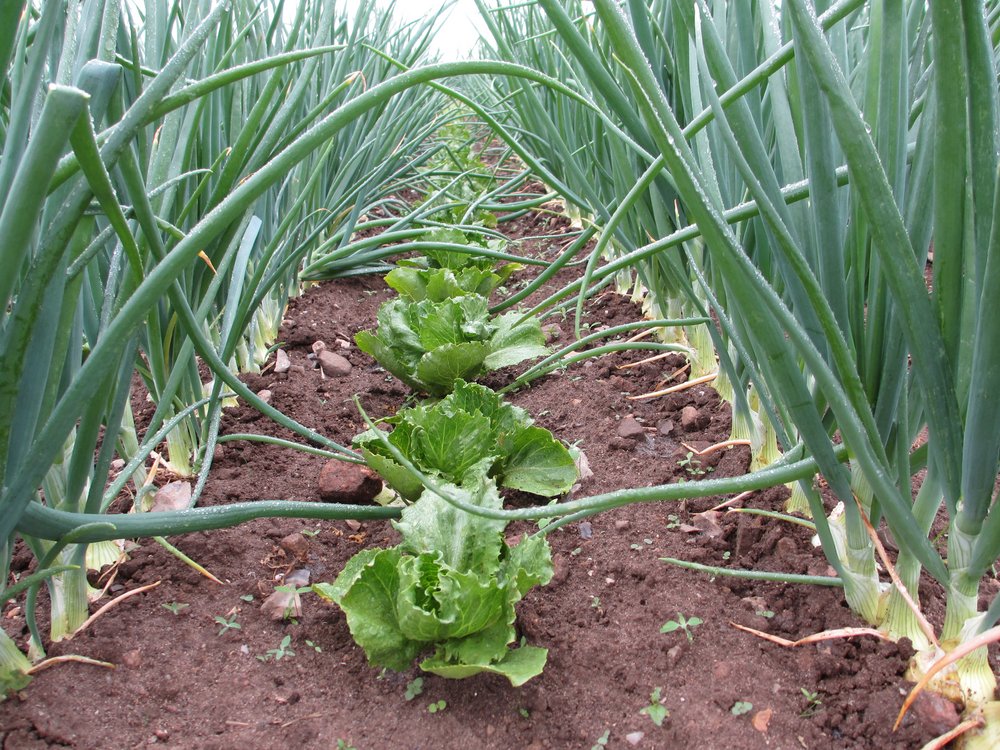
Double cultivation of chives with implantation of lettuce in the DoubleCrop crop rotation. Photo: Jørn Nygaard Sørensen
Purpose of the project
In the ComCrop project, we are investigating a new technology from the entrepreneurial company ComFerm ApS, that specializes in rapid composting and extraction of fertilizers from biomass regarding functionality and effect in vegetable crop rotations. Green manure, plant residues and other biomasses are treated with the technology and tested for effects on yield and soil fertility. The tests are performed both in scientific experiments and in commercial practice. Based on the experimental results, the economic potential of the technology for vegetable producers is assessed.
ComFerm ApS has invented a new composting method where nitrogen is collected from an active compost in a concentrate so that it does not ooze into the surrounding environment. The thin liquid fertilizer is suitable for precision fertilization in vegetables without damaging the crop. The technology has several advantages. The heat from the compost is used for heating or drying purposes, while minimizing the emission of greenhouse gases. High temperatures throughout the biomass ensure that weed seeds and disease germs perish. The compost can be finalized so that it is stable and complies with EU requirements for hygiene.
The new composting technology will eventually be able to be scaled from a small plant to farms with quite a few hectares of land and finally up to an industrial scale. The additional yield in a crop rotation is expected to be in the order of 20% based on 1/5 of the area being cultivated with green manure, which is composted on an ongoing basis, and where the winter capacity in a composting plant is utilized for composting residues from the production, branch clippings and other residual biomasses. Compost and fertilizers are also tested in pot trials and used in the DoubleCrop crop rotation trial, a new intensive cultivation system with double cultivation, plant-based fertilizers, and winter plant cover.
News from the project
- Danish article from Økologisk Landbrug, feb. 2021: Vegetables grown with plant-based fertilizer - it works!
- Danish article from Gartner Tidende, feb. 2021: Fertilizer from new composting method
- Danish article from Gartner Tidende: Open House, Organic Vegetables
- Open house: Organic Vegetables, Årslev, aug. 2020: See the program here (in Danish)
The project step by step
-
ComCrop compost drums are built and installed at Aarstiderne and AU-FOOD
-
The ComCrop drum is tested: Composition of biomass for feeding, composting processes, and product quality
-
Testing of compost and fertilizer products in pot and semi-field experiments with vegetables
-
Commissioning and testing of the demo prototype of the ComCrop drum under commercial conditions
-
Finances are estimated
The project consortium specifies responsibilities of the project partners. ComFerm ApS delivers the technology, the Department of Food is researching the effect of the technology, Aarstiderne A/S tests a demonstration plant in practice and SEGES analyzes financial results, effects of the technology at company level and the potential for implementation in the organic sector. ComCrop is expected to document the opportunity to increase the economic potential of organic vegetable and plant production with the use of the new technology. Furthermore, the project is expected to document the possibility of lifting the potential for achieving better soil fertility and better effects for the environment and climate.
Project period: 2020-2023
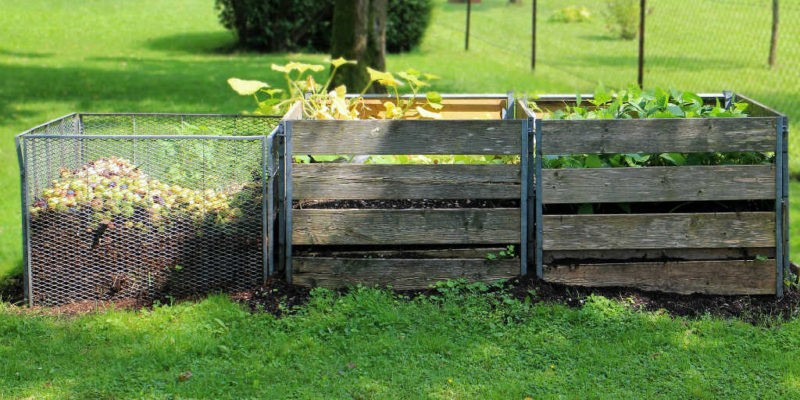
Photo: Aarstiderne
Project leader
Hanne Lakkenborg Kristensen
Aarhus University
Department of Food Science
Agro Food Park 48
8200 Aarhus N
Hanne.Kristensen@food.au.dk
Tlf.: 20 69 80 54
Project partners


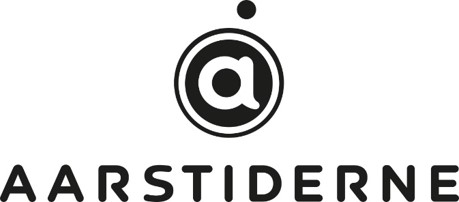
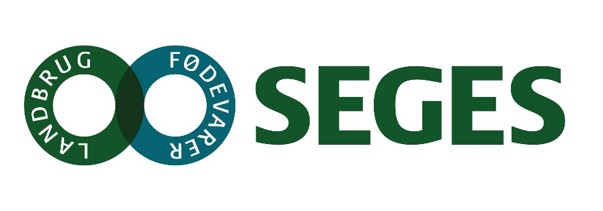
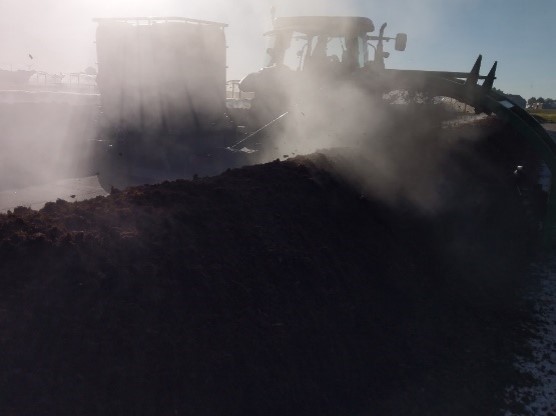
Traditionel compost pile is being turned. ILVO, Belgium. Photo: Hanne Lakkenborg Kristensen
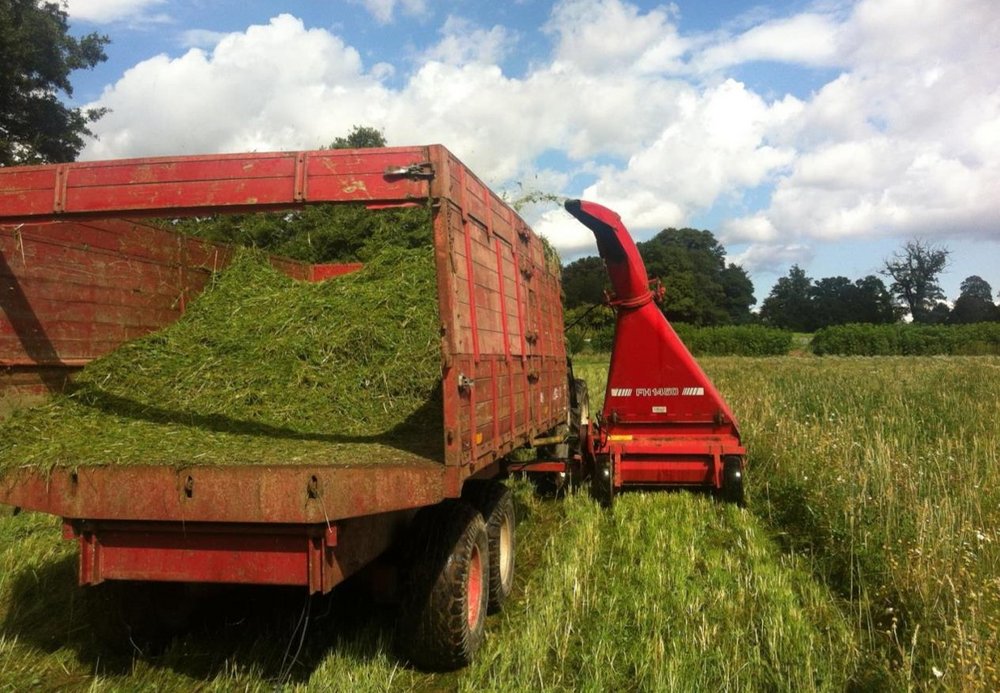
Harvest of green biomass. Photo: Aarstiderne
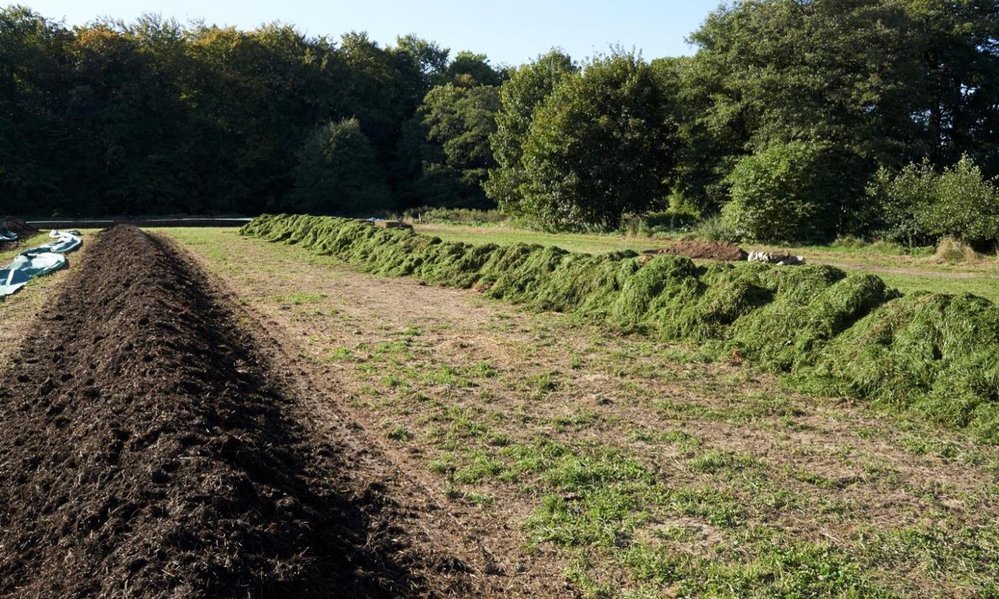
Traditional compost piles in different phases. Photo: Aarhustiderne